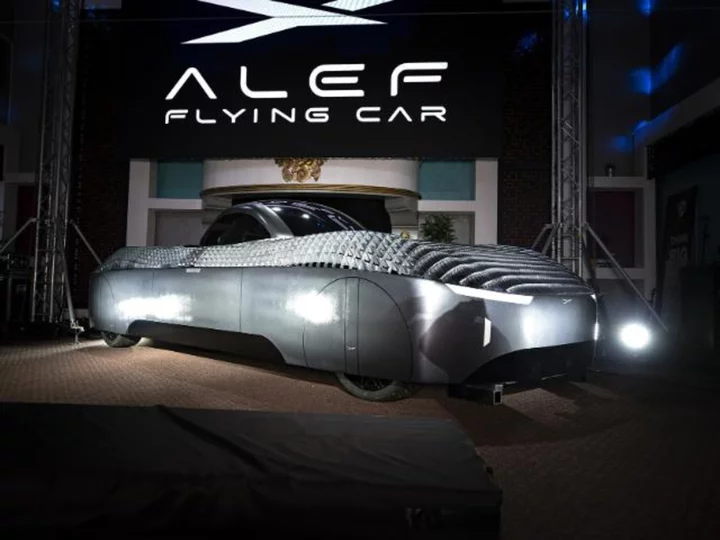The Federal Aviation Administration has certified for testing a vehicle that a California startup describes as a flying car — the first fully electric vehicle that can both fly and travel on roads to receive US government approval.
Alef Automotive said that its vehicle/aircraft, dubbed the "Model A," is the first flying vehicle that is drivable on public roads and able to park like a normal car. It also has vertical takeoff and landing capabilities. It apparently will be able to carry one or two occupants and will have a road-range of 200 miles and a flying range of 110 miles.
The company expects to sell the vehicle for $300,000 each with the first delivery by projected for the end of 2025.
The FAA confirmed that it has issued the company a special airworthiness certificate, allowing for limited purposes that include exhibition, research and development.
Numerous companies are working on all-electric VTOLs, which stands for vehicle takeoff and landing aircraft. The FAA said that Alef is "not the first aircraft of its kind" to get a special airworthiness certificate. However, Alef noted that its vehicle is different because of its ability to function both on roads and in the air, to appear like a normal car and to park in a normal parking space.
"We're excited to receive this certification from the FAA. It allows us to move closer to bringing people an environmentally friendly and faster commute, saving individuals and companies hours each week. This is a one small step for planes, one giant step for cars," said Jim Dukhovny, the CEO of Alef.
The company's website said the flying car will be a certified as a "low speed vehicle," which means it won't be able to go faster than about 25 miles per hour on a paved road. "The assumption is that, if a driver needs a faster route, a driver will use Alef's flight capabilities," the company posted on the site.
Regardless, It also still needs approval from the National Highway Traffic Safety Administration to go on roads.
Development has been underway on the vehicle since 2015. Four friends, Constantine Kisly, Pavel Markin, Oleg Petrov and Dukhovny, inspired by the "Back to the Future" movies (which foresaw flying cars being available in that year), decided to form a company to try to develop them.
According to the company, an initial automated test flight of a skeleton version of the car was successfully conducted in 2018, and a full-size prototype was flown the following year. But Alef said that it needed the FAA's special airworthiness certificate to continue conducting the necessary research and development.
The company also said that earlier this year that it had taken refundable pre-orders for more than 400 of the vehicles, with the cost of $150 for to be in the general queue or $1,500 for the priority queue.

